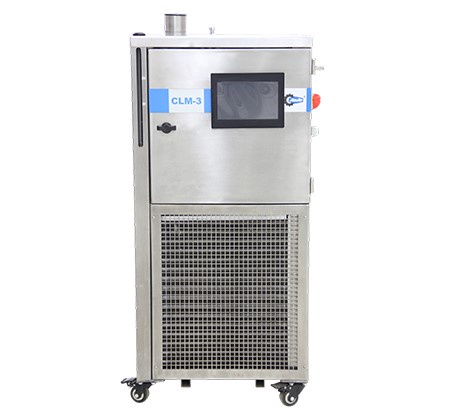Introduction:
Laboratories are dynamic environments where precision, efficiency, and reliability are paramount. Achieving optimal conditions for experiments, analyses, and processes often relies on precise temperature control. Advanced cooling circulator systems have emerged as indispensable tools in laboratories, providing researchers with the capability to maintain and control temperatures with unprecedented accuracy. In this blog post, we will explore how these innovative cooling systems contribute to enhancing laboratory productivity across diverse scientific disciplines.
Precision Temperature Control:
One of the primary advantages of advanced cooling circulator systems lies in their ability to deliver precision temperature control. Whether working with sensitive biological samples, conducting chemical syntheses, or running complex analytical experiments, maintaining a stable and accurate temperature is crucial. These systems offer tight temperature regulation, ensuring that experiments are conducted under optimal conditions for reliable and reproducible results.
Applications in Chemistry and Chemical Engineering:
Reactive Chemistry:
In chemical synthesis, especially for reactions involving heat-sensitive compounds, maintaining a precise and controlled temperature is crucial. Advanced cooling circulators enable chemists to carry out reactions at low temperatures, control exothermic processes, and achieve better selectivity in product formation.
Rotary Evaporation:
Cooling circulators are essential in rotary evaporation, a widely used technique in laboratories for concentrating and purifying samples. By providing efficient cooling for the condenser, these systems enhance the evaporation process, leading to faster and more effective sample preparation.
Jacketed Reactors:
Many chemical reactions occur in jacketed reactors, and precise temperature control is vital for achieving desired reaction rates and product yields. Advanced cooling circulator systems ensure uniform and reliable heat removal from the reactor jacket, enabling researchers to optimize reaction conditions.
Biotechnological Applications:
DNA Amplification (PCR):
Polymerase Chain Reaction (PCR), a fundamental technique in molecular biology, requires precise temperature cycling. Cooling circulators play a critical role in maintaining the low temperatures needed for primer annealing, contributing to the efficiency and accuracy of DNA amplification.
Cell Culture and Tissue Engineering:
In cell culture and tissue engineering, maintaining a stable and controlled environment is essential for cell viability and growth. Cooling circulators provide the necessary temperature control for CO2 incubators, bioreactors, and other systems used in cell-based research.
Analytical Instrumentation:
Gas Chromatography (GC) and Liquid Chromatography (LC):
Chromatographic techniques demand precise temperature control for separation and analysis. Cooling circulator systems enhance the performance of GC and LC instruments by maintaining consistent temperatures in columns, detectors, and sample injectors, leading to sharper peaks and improved resolution.
Nuclear Magnetic Resonance (NMR):
NMR spectroscopy is highly temperature-sensitive, and fluctuations in sample temperature can compromise data accuracy. Cooling circulators provide stable and low-temperature conditions for NMR experiments, ensuring reliable and reproducible spectra.
Material Science and Physics:
Materials Testing:
In material science research, cooling circulator systems are used in various testing procedures, such as differential scanning calorimetry (DSC) and thermogravimetric analysis (TGA). These systems enable researchers to investigate the thermal properties of materials with precision.
Superconductivity Studies:
Research in the field of superconductivity often involves studying materials at extremely low temperatures. Advanced cooling circulator systems facilitate these studies by providing the necessary cooling for cryostats and other experimental setups.
Environmental Chambers and Stability Testing:
Pharmaceutical Stability Testing:
The pharmaceutical industry relies on stability testing to ensure the quality and shelf life of drug products. Cooling circulators are used in environmental chambers to create specific temperature conditions for accelerated and real-time stability testing.
Food and Beverage Testing:
In food and beverage industries, quality control involves testing products under different temperature conditions to assess stability and shelf life. Cooling circulator systems contribute to maintaining precise temperatures during these tests, ensuring accurate and reliable results.
Energy Efficiency and Sustainability:
Advanced cooling circulator systems are designed with energy efficiency in mind. Features such as variable speed pumps, optimal insulation, and advanced temperature control algorithms contribute to reduced energy consumption. This not only lowers operational costs for laboratories but also aligns with sustainability goals by minimizing the environmental impact of cooling processes.
Conclusion:
In conclusion, advanced cooling circulator systems play a pivotal role in enhancing laboratory productivity across a spectrum of scientific disciplines. From enabling precise temperature control in chemical syntheses to supporting critical processes in biotechnology, analytical instrumentation, and material science, these systems have become indispensable tools for researchers seeking reliable and reproducible results. As laboratories continue to push the boundaries of scientific discovery, the integration of advanced cooling circulator systems ensures that experiments are conducted under optimal conditions, leading to breakthroughs and innovations that shape the future of science and technology.


No comments yet